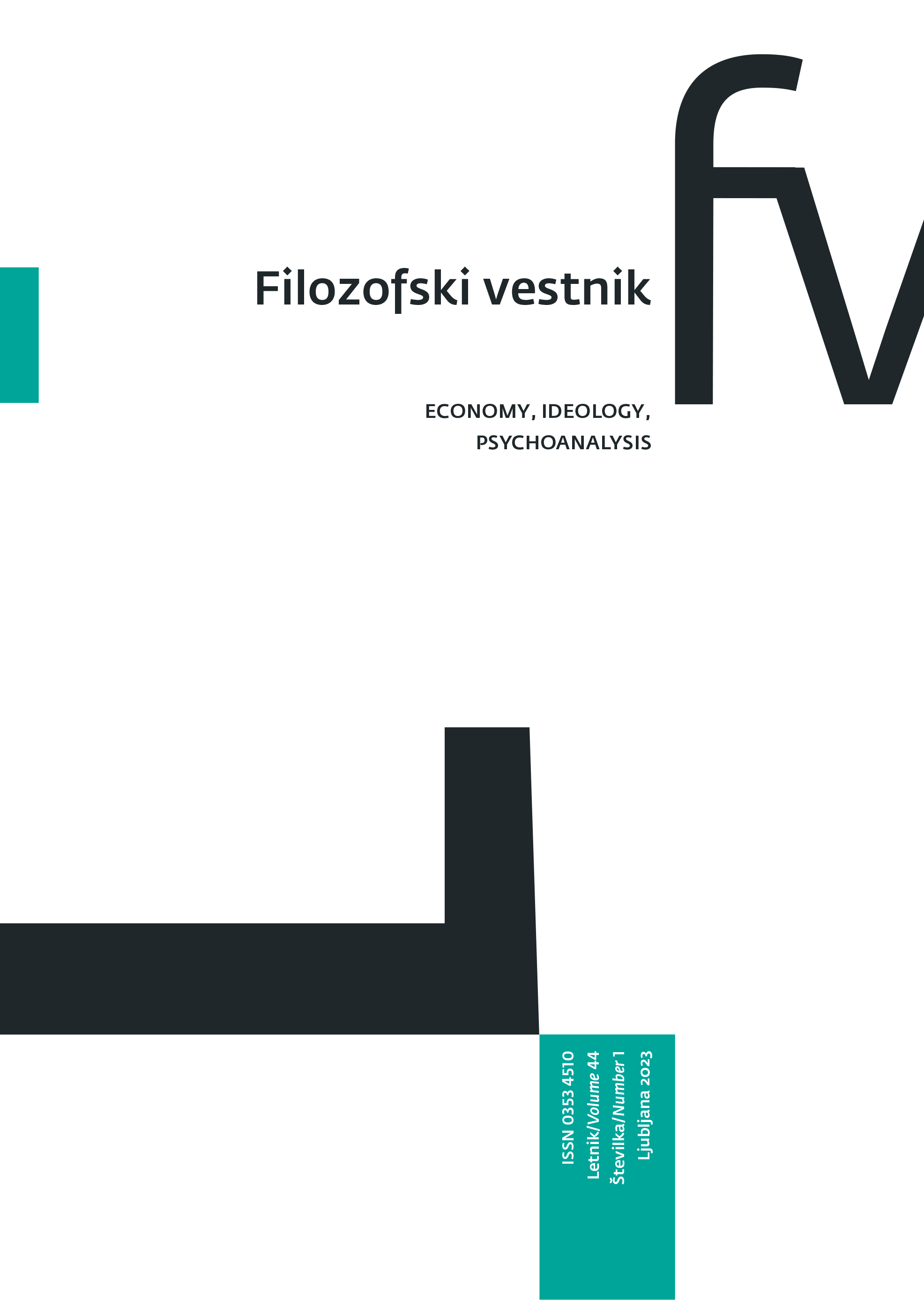Towards a Materialist Reading of Thorstein Veblen's Notion of (Economic) Institution
DOI:
https://doi.org/10.3986/fv.44.1.01Keywords:
Veblen, Cantor, institutions, set theory, habits of thought, instinctsAbstract
Thorstein Veblen once considered his work on instincts to be his only important contribution to economic theory. Instincts are the conditions and causes behind the formation of habits of thought, while the latter are the sine qua non elements of institutions. The article poses the question: If Veblenʼs relation instincts-habits of thought-institutions were to be thought of as a formal system, what role would they conceptually occupy? It interprets habits of thought as pure ideas in a Platonist fashion (eidos)—multiplicities thought as Ideas—conceived by Georg Cantorʼs theory of manifolds and philosophically assessed by Alain Badiou positing that “mathematics is ontology.” The article aims: (1) to show how habits of thought, as institutions, abstracted from all content can be thought of as set-theoretic multiplicities; (2) to relate Veblenʼs prime instinct, the instinct of workmanship, in equivalence with set theory’s axiom of the empty set—pointing towards Veblenʼs materialist orientation.
Downloads
References
Almeida, Felipe. “The Psychology of Early Institutional Economics: The Instinctive Approach of Thorstein Veblenʼs Conspicuous Consumer Theory.” EconomiA 16, no. 2 (May–August 2015): 226–34. https://doi.org/10.1016/j.econ.2015.05.002.
Ayres, Clarence E. The Industrial Economy: Its Technological Basis and Institutional Destiny. Boston: Houghton Mifflin, 1952.
Badiou, Alain. Being and Event. Translated by Oliver Feltham. London: Continuum, 2005.
Badiou, Alain. Conditions. Translated by Steven Corcoran. London: Continuum, 2008.
Badiou, Alain. Theoretical Writings. Edited and translated by Ray Brassier and Alberto Toscano. London: Continuum, 2004.
Cantor, Georg. “Foundations of the Theory of Manifolds.” Translated by Uwe Parpart. The Campaigner. The Theoretical Journal of the National Caucus of Labor Committees 9, no. 1–2 (1976): 69–96.
Cordes, Christian. “Veblen’s ʻInstinct of Workmanship,ʼ Its Cognitive Foundations, and Some Implications for Economic Theory.” Journal of Economic Issues 39, no. 1 (March 2005): 1–20. https://doi.org/10.1080/00213624.2005.11506778.
Deleuze, Gilles. Desert Islands: And Other Texts, 1953–1974. Edited by David Lapoujade. Translated by Michael Taormina. Los Angeles: Semiotext(e), 2004.
Deleuze, Gilles. Empiricism and Subjectivity: An Essay on Hume’s Theory of Human Nature. Translated by Constantin V. Boundas. New York: Columbia University Press, 1991.
Deleuze, Gilles. Instincts et institutions: Textes choisis. Paris: Hachette, 1953.
Foucault, Michel. Archaeology of Knowledge. Translated by A. M. Sheridan Smith. London: Routledge, 2002.
Fraenkel, Abraham A., Yehoshua Bar-Hillel, and Azriel Levy. Foundations of Set Theory. With the collaboration of Dirk van Dalen. 2nd ed. Amsterdam: Elsevier, 2001.
Hegel, Georg W. F. The Science of Logic. Edited and translated by George Di Giovanni. Cambridge: Cambridge University Press, 2010.
Heidegger, Martin. The Question Concerning the Thing: On Kant’s Doctrine of the Transcendental Principles. Translated by James D. Reid and Benjamin D. Crowe. London: Rowman and Littlefield, 2018.
Ishida, Noriko. “Thorstein Veblen on Economic Man: Toward a New Method of Describing Human Nature, Society, and History.” Evolutionary and Institutional Economics Review 18, no. 2 (September 2021): 527–47. https://doi.org/10.1007/s40844-020-00194-x.
Marx, Karl. “Difference Between the Democritean and Epicurean Philosophy of Nature.” Translated by Dirk. J. Struik and Sally R. Struik. In Karl Marx (1835–43), edited by Jack Cohen, James S. Allen, N. P. Karmanova, P. N. Fedoseyev et al., 25–108. Vol. 1 of Karl Marx, Fredrich Engels: Collected Works. London: Lawrence and Wishart, 1975.
Searle, John R. “What is an Institution?” Journal of Institutional Economics 1, no. 1 (June 2005): 1–22. https://doi.org/10.1017/S1744137405000020.
Veblen, Thorstein. Absentee Ownership and Business Enterprise in Recent Times: The Case of America. New York: B. W. Huebsch, 1923.
Veblen, Thorstein. The Instinct of Workmanship and the State of the Industrial Arts. New ed. New York: B. W. Huebsch, 1918.
Veblen, Thorstein. The Place of Science in Modern Civilisation and Other Essays. New York: B. W. Huebsch, 1919.
Veblen, Thorstein. The Theory of Business Enterprise. New York: Charles Scribner’s Sons, 1904.
Waller, William. “Reconsidering Thorstein Veblen’s Use of Instincts.” In The Anthem Companion to Thorstein Veblen, edited by Sidney Plotkin, 39–68. London: Anthem Press, 2017.
Wible, James. “Why Economics Is an Evolutionary, Mathematical Science: How Could Veblen’s View of Economics Have Been So Different Than Peirce’s?” Journal of the History of Economic Thought 43, no. 3 (September 2021): 350–77. https://doi.org/10.1017/S1053837220000450.
Downloads
Published
How to Cite
Issue
Section
License
Copyright (c) 2023 Authors

This work is licensed under a Creative Commons Attribution-ShareAlike 4.0 International License.
Authors guarantee that the work is their own original creation and does not infringe any statutory or common-law copyright or any proprietary right of any third party. In case of claims by third parties, authors commit their self to defend the interests of the publisher, and shall cover any potential costs.
More in: Submission chapter





